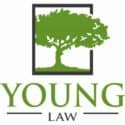With the Commonwealth of Virginia’s adoption of the Virginia Uniform Trade Secrets Act (also commonly referred to as the VUTSA), many people have begun to wonder exactly how it will affect the business environment that they operate in on a daily basis. At its core, the Act was designed to both protect innovation by companies that depend on such advancements to release their products and services and also to protect free and legitimate competition in the marketplace. The VUTSA certainly has some interesting implications for businesses operating in the Commonwealth moving forward.
What is a Trade Secret?
To better understand exactly what the Virginia Uniform Trade Secrets Act does, it is first important to understand exactly how a Trade Secret is defined in the first place. At its core, a Trade Secret is defined as a pattern, a method, a design, an instrument, a formula, a process or some combination thereof that businesses use to obtain some type of economic advantage over their competitors. In essence, it is the “secret formula” that businesses use to further their own abilities to make an impact on the marketplace through the release of products or services.
Consider the example of Apple, tech giant and one of the most successful companies on the planet. When you purchase an iPhone in the store, you know exactly what it does – but you don’t necessarily know how it was manufactured. Apple keeps the information that it collected via research, the manufacturing techniques that it developed and other aspects of the phone’s production a closely guarded secret so that it cannot be imitated by other companies, thus allowing them to release a wholly unique product and obtain a competitive advantage as a result.
What is Misappropriation of a Trade Secret?
In regards to keeping Trade Secrets closely guarded, there are two different avenues that a company or individual might choose to pursue. One is to try to discover the Trade Secret of another company through lawful methods, like by reverse engineering or by hiring a former employee of that company that has recently been let go for whatever reason. If Samsung engineers buy an iPhone like any other customer, they’re allowed to take that iPhone apart and try to learn everything that they can from the valuable components hidden inside. This process can actually help shed valuable insight on why certain decisions were made in the manufacturing process, which features had to be streamlined in order to guarantee more efficient operation and more. However, keep in mind that other Trademark and Patent law might limit a competitor as well.
If a Trade Secret is obtained via unlawful means, however, this is known as misappropriation. A wide range of different illegal tactics fall under the umbrella of misappropriation and the penalties can be quite severe, with judgments totaling in the millions of dollars.
One example of misappropriation would be theft – a rival phone manufacturer can buy a brand new iPhone model on the open marketplace like everybody else, but they cannot steal a prototype in order to learn the same information. Bribing an employee for Trade Secrets, the use of a computer or computer network (and accessing the files contained within) without the appropriate permission or authority, a breach of a duty or inducement of a breach to maintain secrecy and electronic espionage are all additional examples of misappropriation under the VUTSA and under general laws in particular.
Another example that arises quite often in my practice is the disgruntled employee who downloads data from their employer’s network on the way to a new job or position. Customer lists and buying information may be considered trade secret in some instances.
It’s important to note, however, that to prove that misappropriation occurred in a court of law, the plaintiff needs to be able to prove that they took reasonable efforts to maintain the secrecy of the Trade Secret in the first place. If a Trade Secret was obtained due to negligence on behalf of the plaintiff, this isn’t necessarily an example of misappropriation.
Litigation in Virginia under this area of the law is extremely fact-sensitive. It is difficult to state clear rules and the courts will look to the individual facts in each instance. If you have questions about definitions under the VUTSA, look to Virginia Code Sec. 59.1-336. Of course, you could certainly contact my office to arrange a meeting.
Virginia Uniform Trade Secrets Act | Ryan C. Young | Richmond, Virginia Attorney

